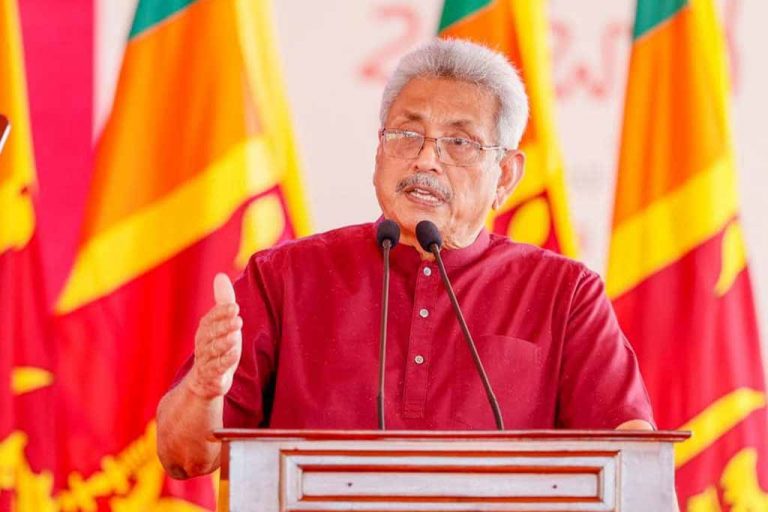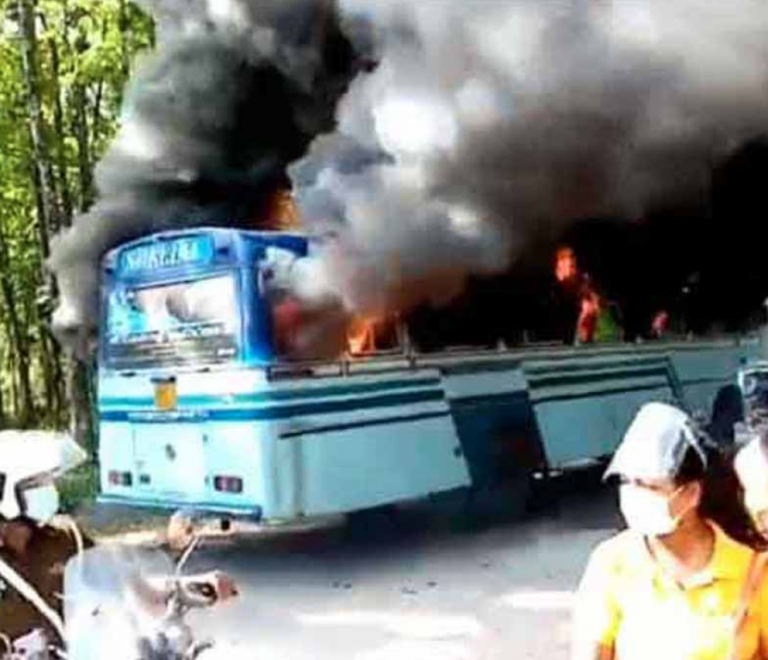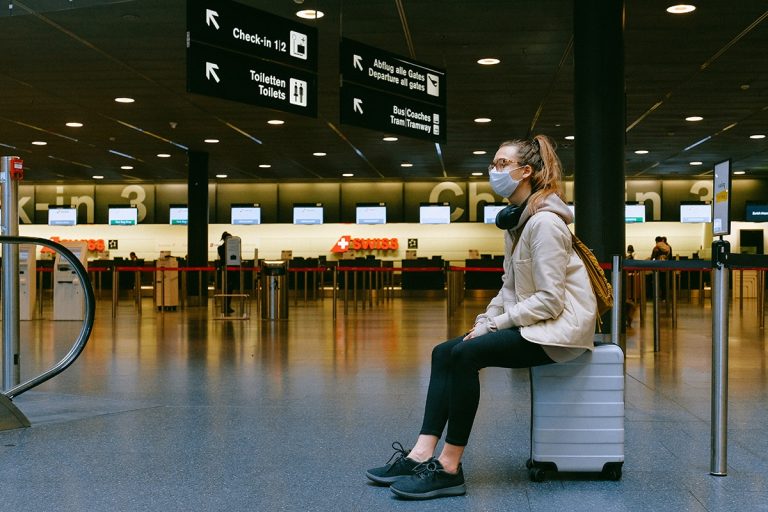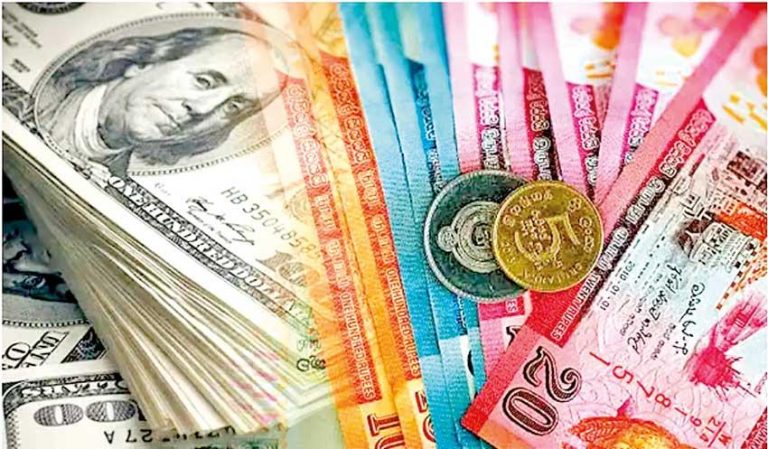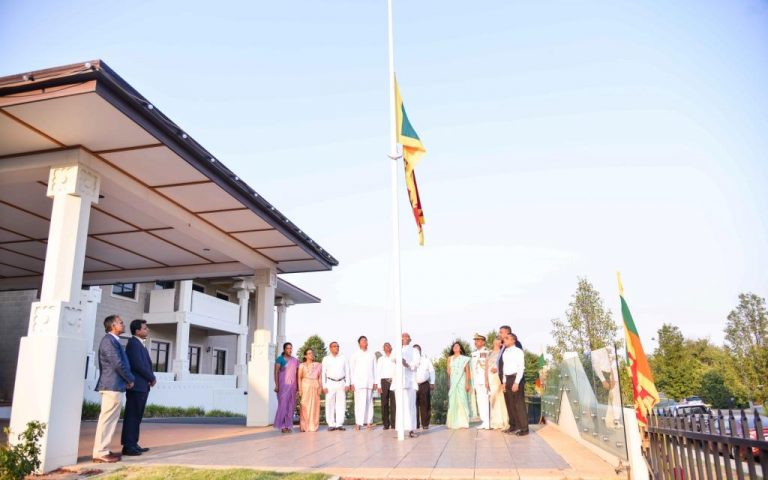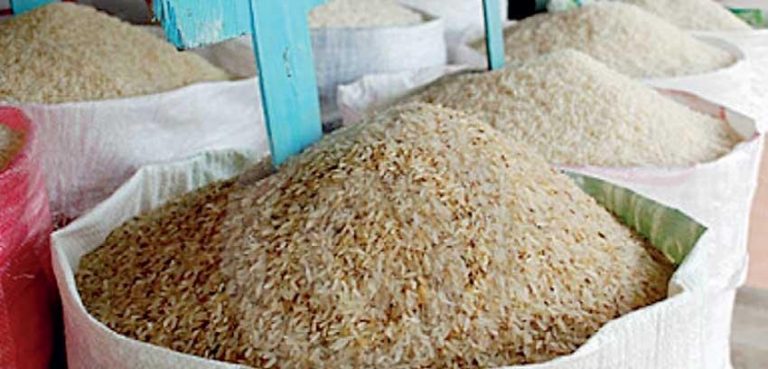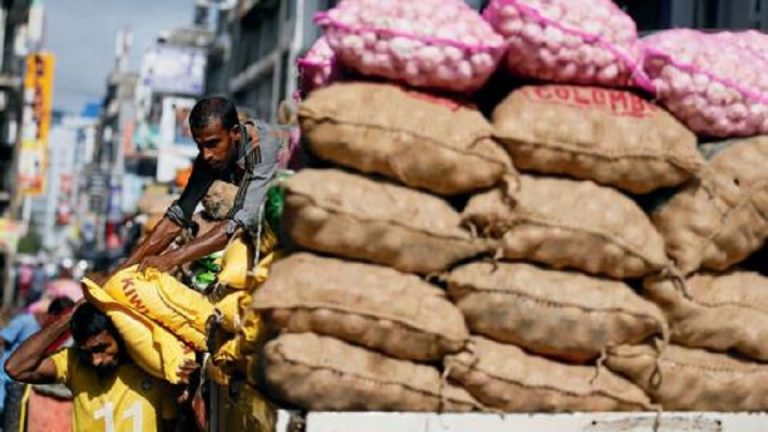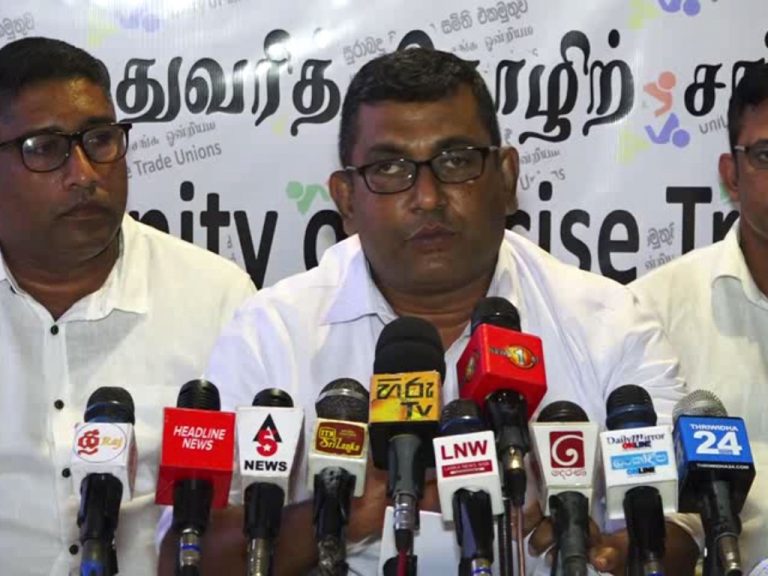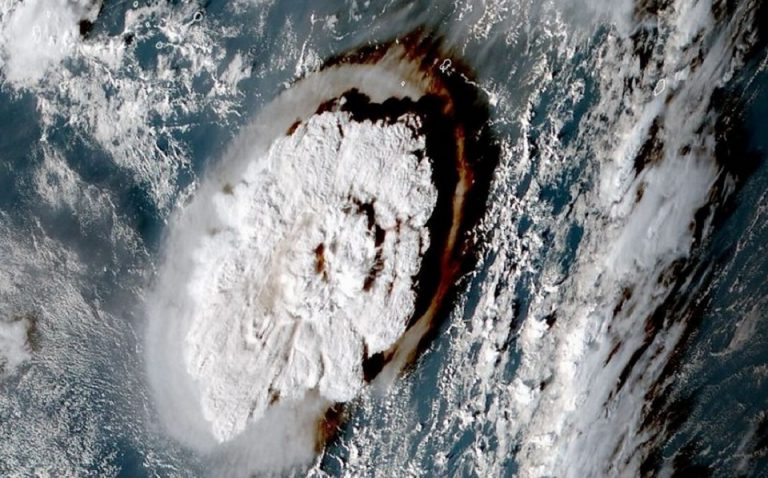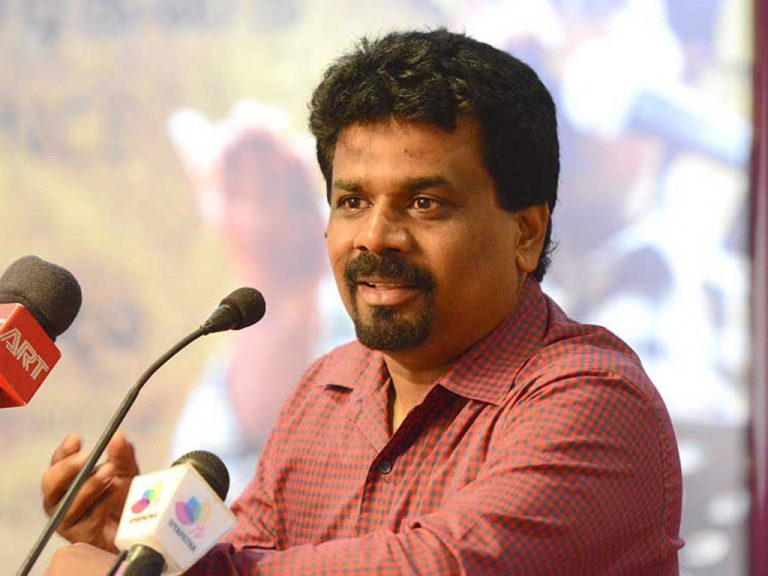By Qadijah Irshad
Fathima Aroos looks across her two young children and whispers: “I’ve told them it’s Ramadan now and that’s why we are fasting. Don’t tell them otherwise.”
Fathima and her children, aged five and six, live in the suburbs of Sri Lanka’s capital Colombo. Her husband Rafeek Aroos is a 36-year-old daily wage earner with a history of depression. Because they can’t feed their children three meals a day due to the accelerating cost of living in Sri Lanka, she pretends it’s Ramadan now.
“This way, we can manage with a plain porridge after we break our fast and rice soaked in water and onion for suhoor (the early morning meal),” says Fathima. “It keeps the children quiet.”
Fathima is not the only one struggling to make ends meet in a country where the economy is crumbling. In the Kalpitiya area in northwestern Sri Lanka, bordering one of the world’s most beautiful beach destinations, entire clusters of villages are starving.
“We go hungry most of the time now. Just some fish that someone is kind enough to hand out to us because what I earn is not enough to buy food anymore,” says Rahmath Niyas, a single mother who is surrounded by three crying children. In other thatched homes of fishermen and daily wage earners, parents sit listlessly, while their children cry out of hunger.
The tourism-dependent island has been hit hard by the Covid-19 pandemic and what critics call “imprudent government decisions”.
The import-reliant island nation is facing a severe dollar crunch, which reports say have left it on the brink of bankruptcy as inflation rises to record levels.
This means further food scarcity in a nation where even the lower middle class has resorted to two meals a day. Sri Lanka has an outstanding debt of $7 billion to be repaid in 2022. By January 18, Colombo must repay $500 million, and another $1 billion in July.
Writing in Colombo Gazette, Suhail Guptil said that Sri Lanka has been continuously facing twin deficits — that is, fiscal deficit and trade deficit — during the major part of the last decade. Since 2014, Sri Lanka’s foreign debt level has been on the rise and reached 42.6 per cent of GDP in 2019.
Guptil explained that the cumulative foreign debt of the country was estimated at $33 billion in 2019, which puts a huge burden on the country for debt servicing.
The US credit rating agency Fitch gave Sri Lanka the lowest CC rating last month, a fresh blow to a country that has never defaulted despite its mounting foreign debts over the years. But this year might be the end of that clean record, say economists.
On Wednesday, Colombo ruled out an International Monetary Fund (IMF) bailout that local and international economists have been calling for.
At a press conference, the governor of the Central Bank, Ajith Nivard Cabraal, told reporters that the country would rather seek new loans from China, to which it is already heavily indebted rather than go to the IMF.
“The IMF is not a magic wand,” said Cabraal. “At this point, other alternatives are better than going to the IMF.”
Celebrating 65 years of Sri Lanka-China bilateral relationship last Sunday, President Gotabhaya Rajapaksa sought to reschedule the country’s mammoth Chinese debt burden with Chinese Foreign Minister Wang Yi. China is Sri Lanka’s biggest lender, accounting for at least $4 billion Sri Lanka’s $35 billion foreign debt.
Sri Lanka has received flak from the US and India for its involvement with China, particularly for leasing the strategic Hambantota port to China for 99 years when it failed to repay a $1.4 billion loan for the port construction. The port, which is located along vital east-west international shipping routes, could give China a military stronghold in the Indian Ocean.
On Thursday, India promised a $400 million currency swap with the debt-ridden island nation. The Sri Lankan neighbour also deferred another $500 million that is due for settlement to the Asian Clearing Union (ACU), to which Sri Lanka and India belong along with seven other member nations.
However, China and India are not the only countries cash-strapped Sri Lanka has recently borrowed from as it struggles with crushing foreign debt.
In June, Bangladesh decided to lend Sri Lanka $200 million in a currency swap arrangement, making Bangladesh a lender in the global economy for the first time.
Last month, Colombo made an oil-tea pact with Iran to settle off a debt for past oil imports from Iran by paying off in tea, currently the island nation’s second biggest export after garments. Plantations Minister Ramesh Pathirana said that Sri Lanka will send $5 million worth of tea to Iran per month to clear a $251 million debt.
State Minister of Finance Shehan Samarasinghe told parliament in December that the country is “working with the central bank of Qatar to have swap facilities of over a billion US dollars with Sri Lanka’s central bank.”
Despite the foreign loans trickling in slowly, the crisis continues with food and fuel shortages, forcing the National Electricity Board to implement power cuts throughout the island. The blackouts imposed by power utilities which is unable to fund oil imports have sparked major concerns among local industries.
“Our cost of production has gone up by more than 50 per cent with the power cuts because now we have to run the generator. Add to it the rise in imported feed cost thanks to the dollar rising, farmers are suffering,” says Shevantha Ratnayake, a prawn farmer. “We can’t run the next culture, and I don’t know what to do.”
Sri Lanka’s dollar dilemma
Kalpitiya, a previously bustling kite surfing destination in western Sri Lanka, is now a ghost town. S. Tharindu, a licensed kite surfing instructor and champion kite surfer who previously earned 50 euros per lesson from foreigners, now ekes out his living by fishing.
“We have had no income since the pandemic, it’s been tough for all of us,” he says. “Many families now live on just two meagre meals a day.”
Sri Lanka’s tourism industry, which brings in foreign exchange and makes up over 10 per cent of the country’s Gross Domestic Product, has been hit hard by the pandemic. As a result, the island nation’s foreign exchange reserves have depleted drastically.
Since Gotabhaya Rajapaksa took office in November 2019 as president, and the country recording its first Covid-19 case a month later, forex reserves dropped from $7.5 billion to just $1.5 billion at the end of November — enough to pay for only about a month’s worth of imports.
As the central bank chief Weligamage Don Lakshman stepped down in September with the deepening of the reserve crisis, the country announced the closure of three overseas diplomatic missions in December in a bid to save foreign currency reserves.
“The Sri Lankan High Commission in Nigeria and consulates in Germany and Cyprus will be closed from January in the restructuring,” the Ministry of Foreign Affairs said in a statement. “The restructuring is undertaken with a view to conserving the country’s much needed foreign reserves and minimising expenditure related to maintenance of Sri Lanka’s missions overseas.”
The government also ordered all commercial banks to hand over a quarter of their dollar earnings to the government, which means fewer dollars for private traders to borrow from banks to import essential goods. The Central Bank went as far as to request loose change from people returning from overseas trips.
Sri Lanka is heavily dependent on imports, even to meet its basic food supplies including rice, sugar and milk powder. With foreign exchange drying up and the rupee depreciating by more than 11.1 per cent, the price of necessities has catapulted. Sri Lanka’s inflation rocketed further after a record money printing by the government to maintain low interest rates in November.
In April last year, President Rajapaksa announced his plan to make Sri Lanka the first nation in the world to return to strictly organic farming and make it a green economy. He promptly banned the importation and use of chemical fertilisers, pesticides, weedicides and fungicides.
A fast-depleting foreign reserves caused by a pandemic recession, led to severe shortages of food, fuel, medicine and other essentials. The banning of imported fertiliser led to further shortage of food. On August 31, the government declared a state of emergency and imposed rationing.
But the rationing led to black market and the military was deployed to seize goods from warehouses and force farmers to sell their rice to a state agency. As prices of vegetables skyrocketed to more than 400 per cent, over three-quarters of the 22 million Sri Lankans who earn less than $10 a day took the brunt of it.
But as the shortages worsened, in October, the government decided to end price controls. Despite the availability of food, families like the Aroos continue to live in poverty.
“Schools have started last week, but I’m not planning to send the children,” says Fathima. “I can’t even afford to feed them. How am I going to pay for uniforms and their writing books?”

